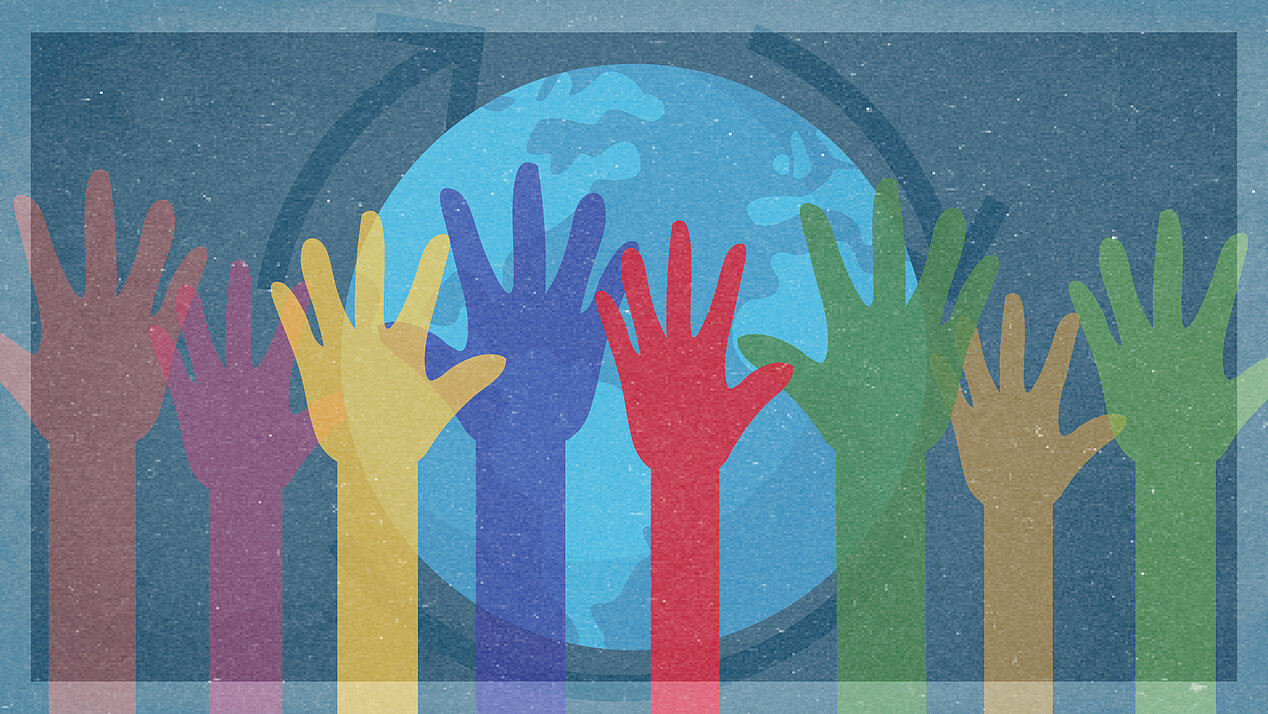In September 2015, the United Nations marked its 70th anniversary with a universal agenda for sustainable development. Adopted by all UN member states, Agenda 2030 was an unprecedented plan of action, committing to bold and transformative steps for people and the planet. At the heart of the Agenda were 17 Sustainable Development Goals (SDGs), structured around 169 targets. These Goals address three main dimensions for development: economic, social, and environmental. Importantly, they aim at all countries in the same way, as equals, in a framework of global partnerships.
Culture in Agenda 2030: An Unofficial Pillar?
In the months prior to the Agenda adoption, UNESCO and several other cultural networks campaigned for the inclusion of culture as a fourth pillar of the Sustainable Development Goals. This was not ratified in the final Agenda, but as Gijs de Vries points out in a new study of ifa's Research Programme 'Culture and Foreign Policy', culture is nevertheless an integral part of the Agenda vision and strategy. 'The Sustainable Development Goals provide pathways for culture to flourish,' writes de Vries 'but culture also helps to drive the SDGs.'
As de Vries documents, there are explicit references to culture throughout the SDGs and associated targets – most particularly in terms of Decent Work and Economic Growth (SDG 8), including the promotion of creativity and innovation; Sustainable Cities and Communities, including the safeguarding of natural and cultural heritage (SDG 11); and Quality Education for all, which promotes 'a culture of peace and non-violence, global citizenship and appreciation of cultural diversity' (SDG 4).
Many other Agenda Goals – including those on Equality; Climate Action; Peace, Justice, and Strong Institutions – also feature targets with a clear cultural scope.
The EU: A Dual Commitment and a Crucial Moment
As a self-appointed 'front-runner' in the implementation of Agenda 2030, the European Union is, de Vries argues, uniquely placed to harness these cultural drivers and components for a sustainable future. Not only has the European Council made a clear commitment to implement Agenda 2030 'in a full, coherent, integrated and effective manner'; it has also repeatedly committed to culture and cultural heritage as integral to European identity and as 'key to building inclusive and cohesive societies, and to sustaining our competitiveness'.
Heritage and creativity also matter to EU citizens. In a 2017 study, culture was determined the most important factor in creating a feeling of community across EU member states. To many non-Europeans, culture is likewise a prominent part of Europe's appeal and largely positive reputation. It is the EU’s opportunity – and challenge – to combine these culture and sustainability commitments, and to do so in a way that reflects Agenda 2030's foundation of international equity.
As the cultural sector around the globe reels from the impact of COVID-19, this task is all the more complex – and urgent. Through pandemic lockdowns, 89 per cent of countries have closed down World Heritage Sites and 95 per cent of countries have closed or partially closed museums. Cultural performances of all varieties have been cancelled. Artists and host institutions have seen revenues evaporate. Despite these crushing circumstances, culture's place in the pandemic need not only be one of struggle and loss. As de Vries points out, culture can be a key component in the post-COVID recovery, much as it can drive the Sustainable Development Goals. But this first requires the EU to decide on a cultural rescue package as part of its new REACT-EU scheme, and to mainstream culture in its Next Generation Plan.
Coordinated Action and Equitable Partnership
For de Vries, the EU's effectiveness in meeting these demands will depend, above all, on coordination: more effective coordination between the EU and the member states, and better coordination between the Commission and the EU's diplomatic arm, the European External Action Service. A step up in budgeting will be key, as will a shift in perspective. The Sustainable Development Goals invite countries into partnership, and the EU must honour that framework to gain, as much as share, knowledge. In particular, equitable partner programmes can include initiatives to dismantle the Eurocentrism that still permeates EU cultural production and school curricula and build up inclusive, transnational histories – including awareness of Europe's legacies of anti-Semitism and colonialism.
In terms of climate action, the EU cultural sector must green its own activities while leveraging its visibility to raise climate awareness. Artists, actors, archaeologists, architects, historians, curators, musicians, librarians, natural scientists and social scientists, teachers and writers, all have invaluable insights to share, and unrivalled proximity to the public to stress the urgency and required steps of climate action.
Among member states, and in wider global partnerships, the EU must improve site-level monitoring and research at natural heritage sites, but it should also involve cultural professionals to design, fund, and implement measures that can mitigate climate change damage and support the transition to a low-carbon, sustainable future. Finally, the EU must recognise culture in the fundamental right to freedom of expression, which continues to suffer sustained attacks in many countries around the world. This trend applies both beyond and within the EU. Only this year, the UN Special Rapporteur in the field of Cultural Rights, Karima Bennoune, warned that in Poland, the term 'anti-Polish' is being applied to Poles who express views different from those of the government or ruling party – including through art and culture. The EU must step up its commitment to free and artistic expression, not only through 'quiet diplomacy' measures, but also through vocal public statements, such as High Representative of the Union for Foreign Affairs and Security Policy Josep Borrell's recent declaration on World Press Freedom Day, and through practical initiatives, such as shelter schemes for oppressed and silenced artists, academics, and journalists.
Too often, as de Vries writes, culture is treated as a 'luxury' – tangential, or even superfluous – to the essential workings of the world. In fact, when it comes to crafting the ambitious new future of Agenda 2030, it is culture and creativity that will inspire new perspectives, transform values, shift behaviours, and enable change. Be it in education, equality, climate action, or an informed and empowered citizenry, the EU should leverage culture as the lead messenger on sustainability goals.






